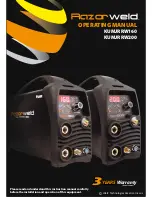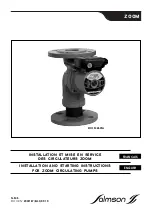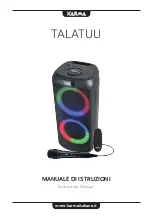
15
MMA (Manual Metal Arc) Welding
One of the most common types of arc welding is manual metal arc welding (MMA) or stick welding. An electric
current is used to strike an arc between the base material and a consumable electrode rod or ‘stick’. The electrode
rod is made of a material that is compatible with the base material being welded and is covered with a flux that gives
off gaseous vapours that serve as a shielding gas and providing a layer of slag, both of which protect the weld area
from atmospheric contamination. The electrode core itself acts as filler material the residue from the flux that forms a
slag covering over the weld metal must be chipped away after welding.
Core wire
Flux coating
Gas shield from flux melt
Arc with core wire melt
Flux residue forms slag cover
Weld metal
Power Source
+
▬
• The arc is initiated by momentarily touching the electrode to the base metal.
• The heat of the arc melts the surface of the base metal to form a molten pool
at the end of the electrode.
• The melted electrode metal is transferred across the arc into the molten pool
and becomes the deposited weld metal.
• The deposit is covered and protected by a slag which comes from the
electrode coating.
• The arc and the immediate area are enveloped by an atmosphere of
protective gas
Core wire
Flux coating
Base metal
Protective gas
Arc
Slag
Weld pool
Manual metal arc ( stick) electrodes have a solid metal wire core and a flux
coating. These electrodes are identified by the wire diameter and by
a series of letters and numbers. The letters and numbers identify the metal
alloy and the intended use of the electrode.
The Metal Wire Core works as conductor of the current that maintains the arc.
The core wire melts and is deposited into the welding pool.
The covering on a shielded metal arc welding electrode is called Flux.
The flux on the electrode performs many different functions.
These include:
●
producing a protective gas around the weld area
●
providing fluxing elements and deoxidizers
●
creating a protective slag coating over the weld as it cools
●
establishing arc characteristics
●
adding alloying elements.
Covered electrodes serve many purposes in addition to adding filler metal to
the molten pool. These additional functions are provided mainly by the
covering on the electrode.
Summary of Contents for KUMJRRW160
Page 35: ...NOTES ...
















































